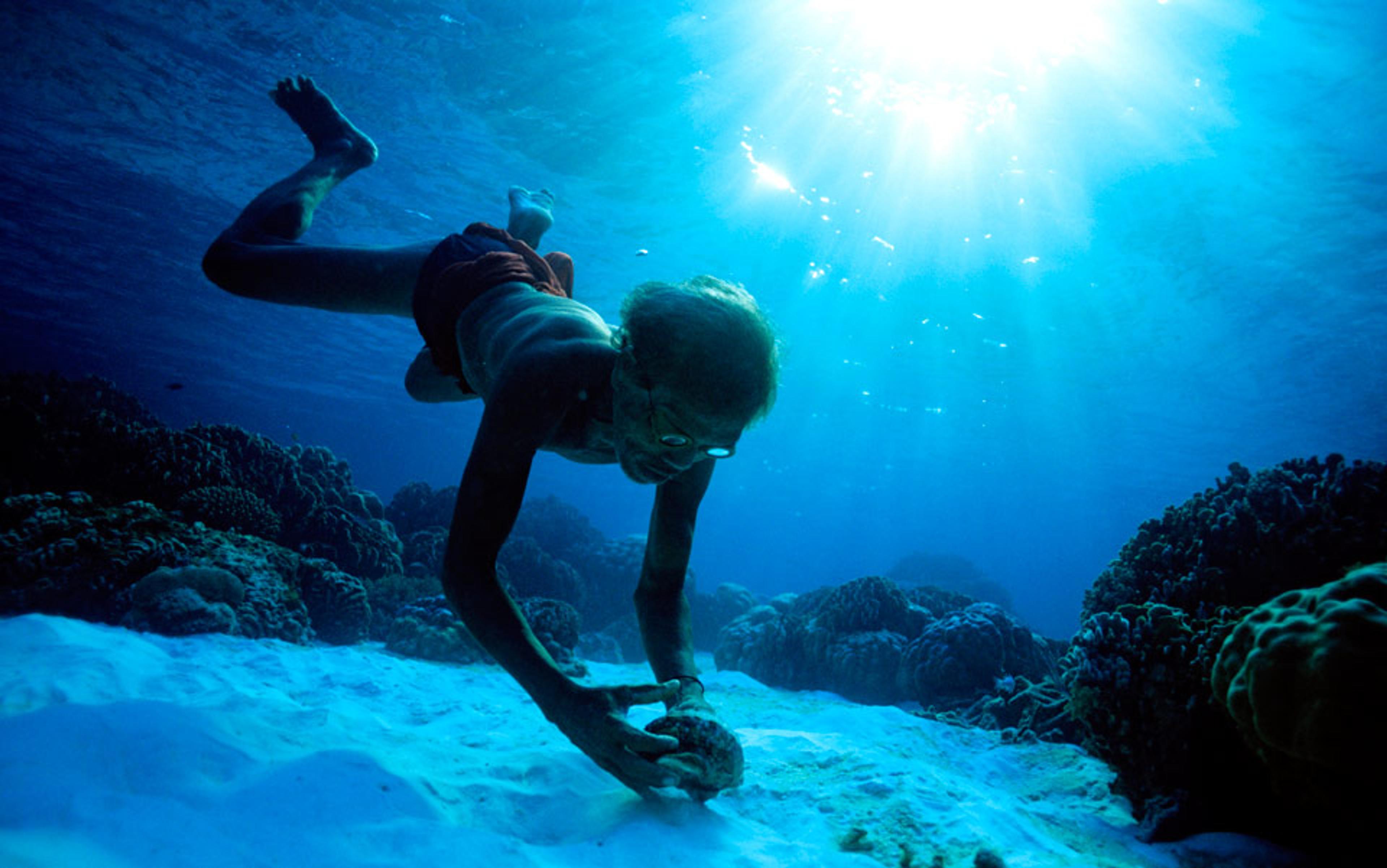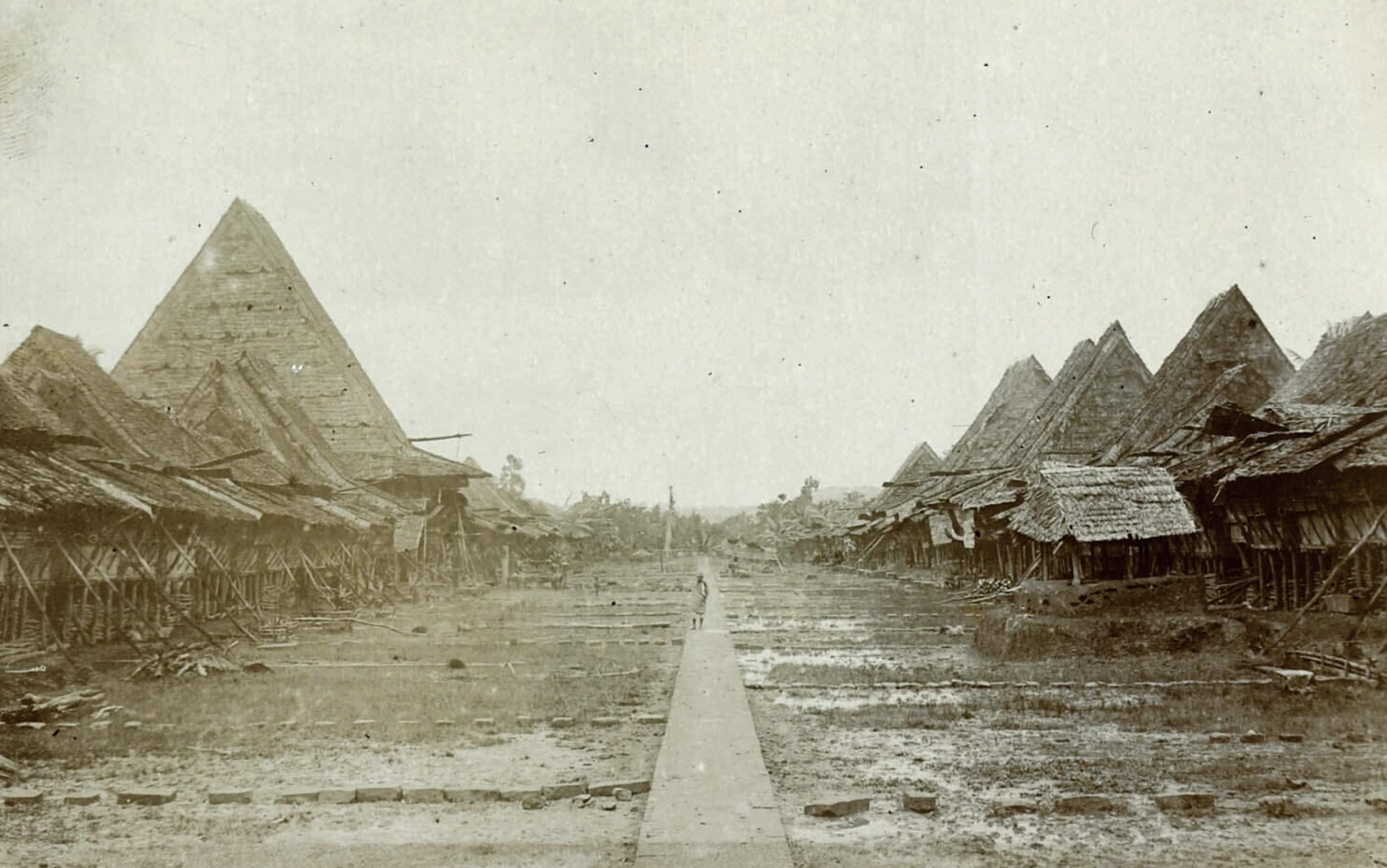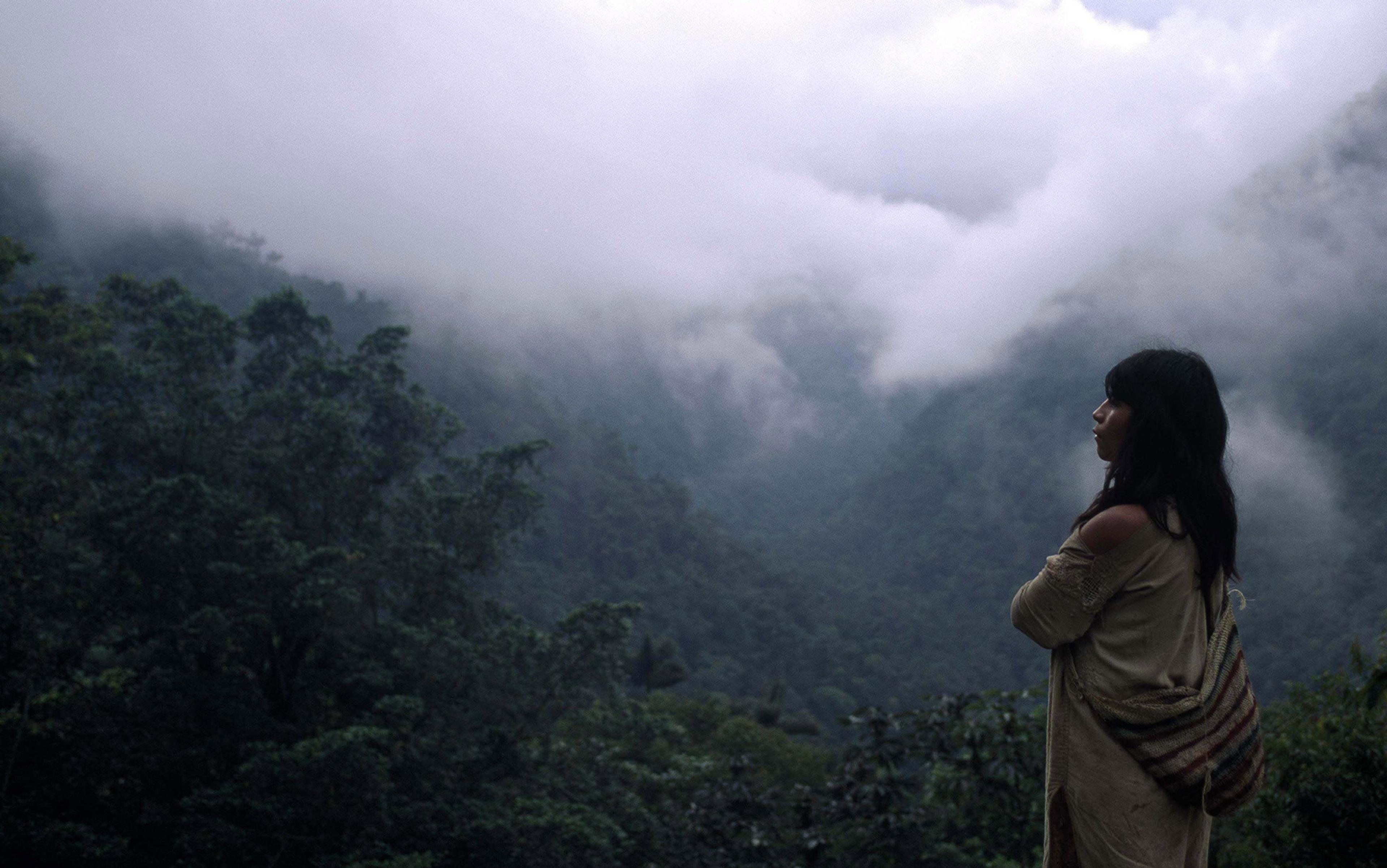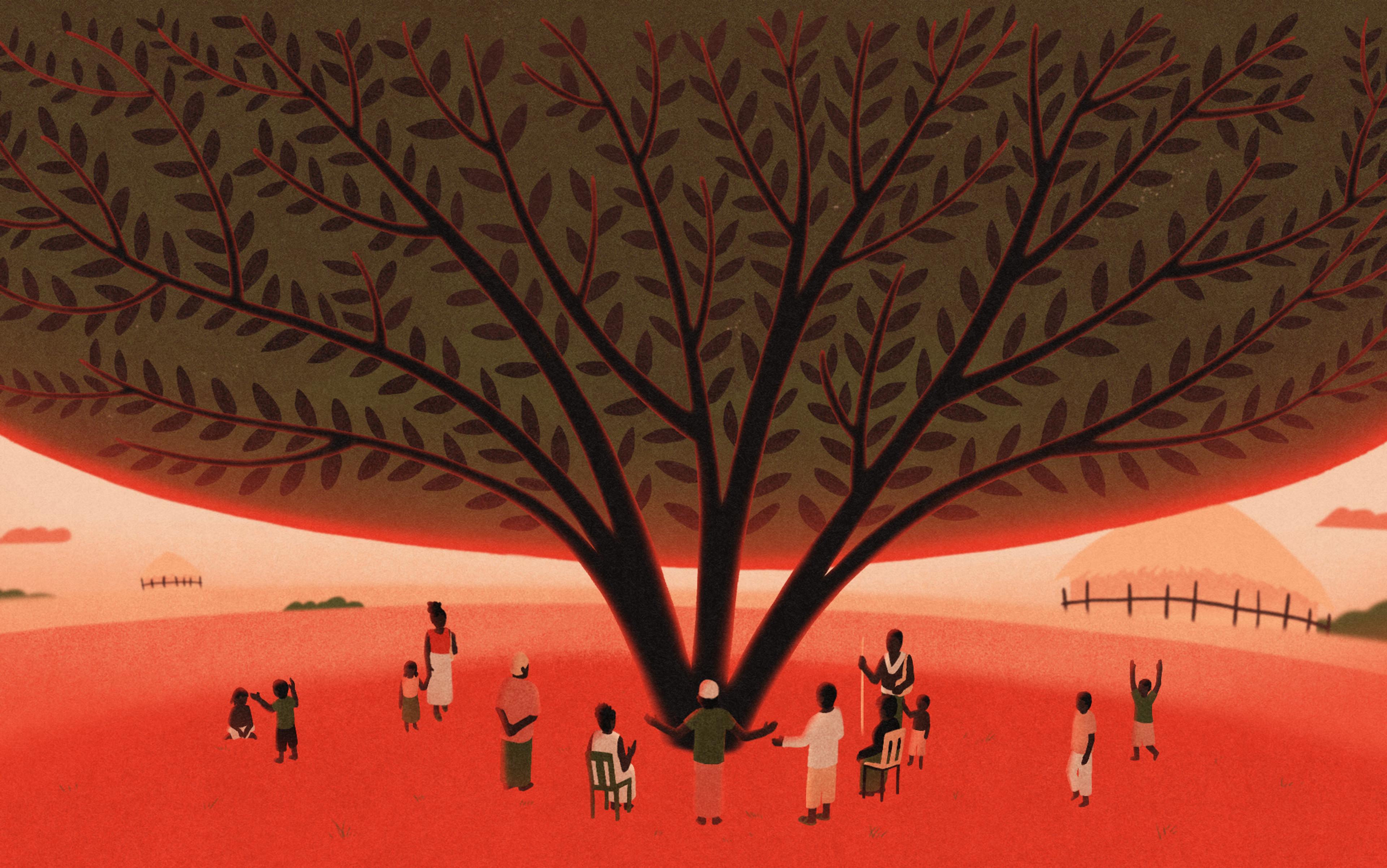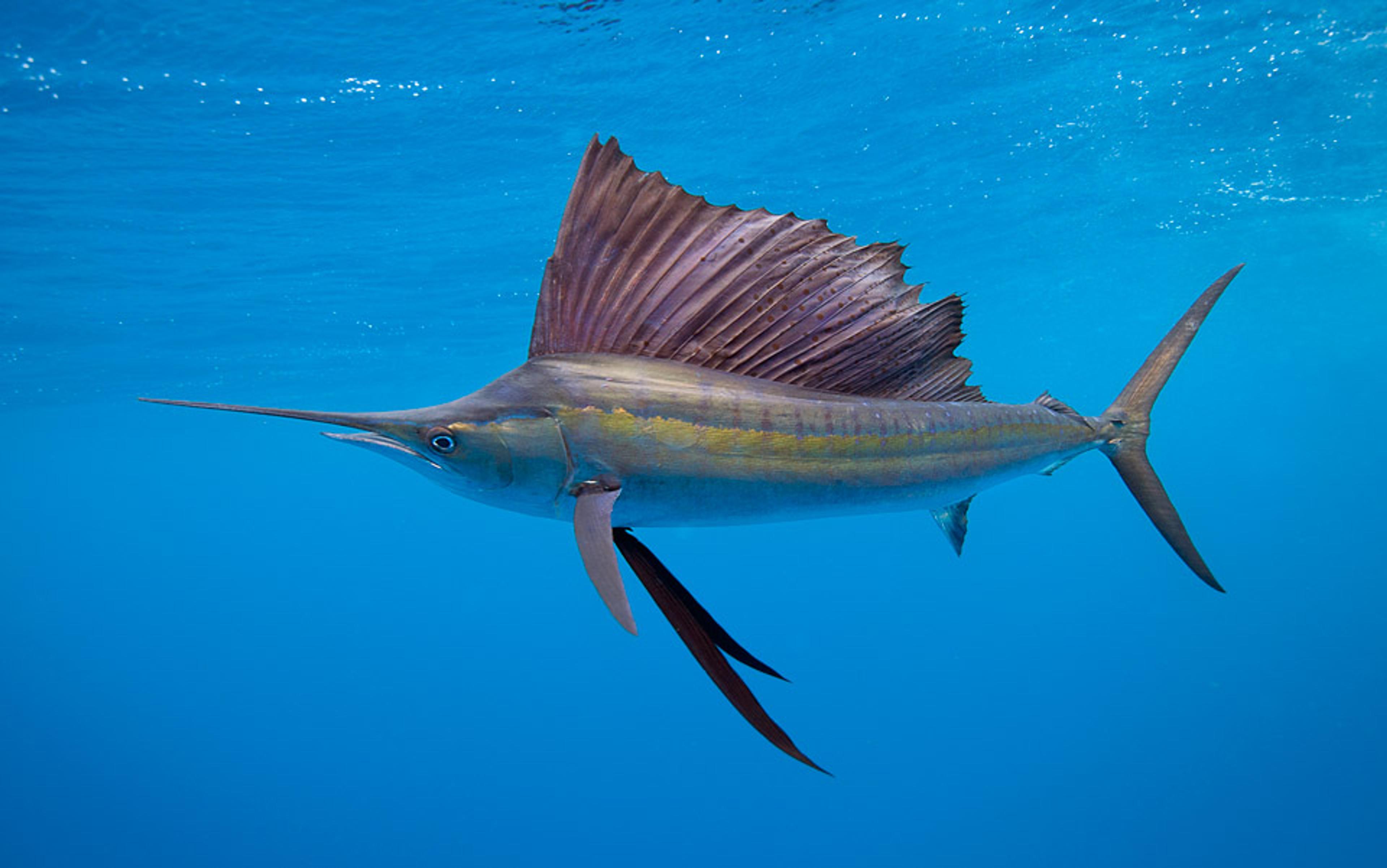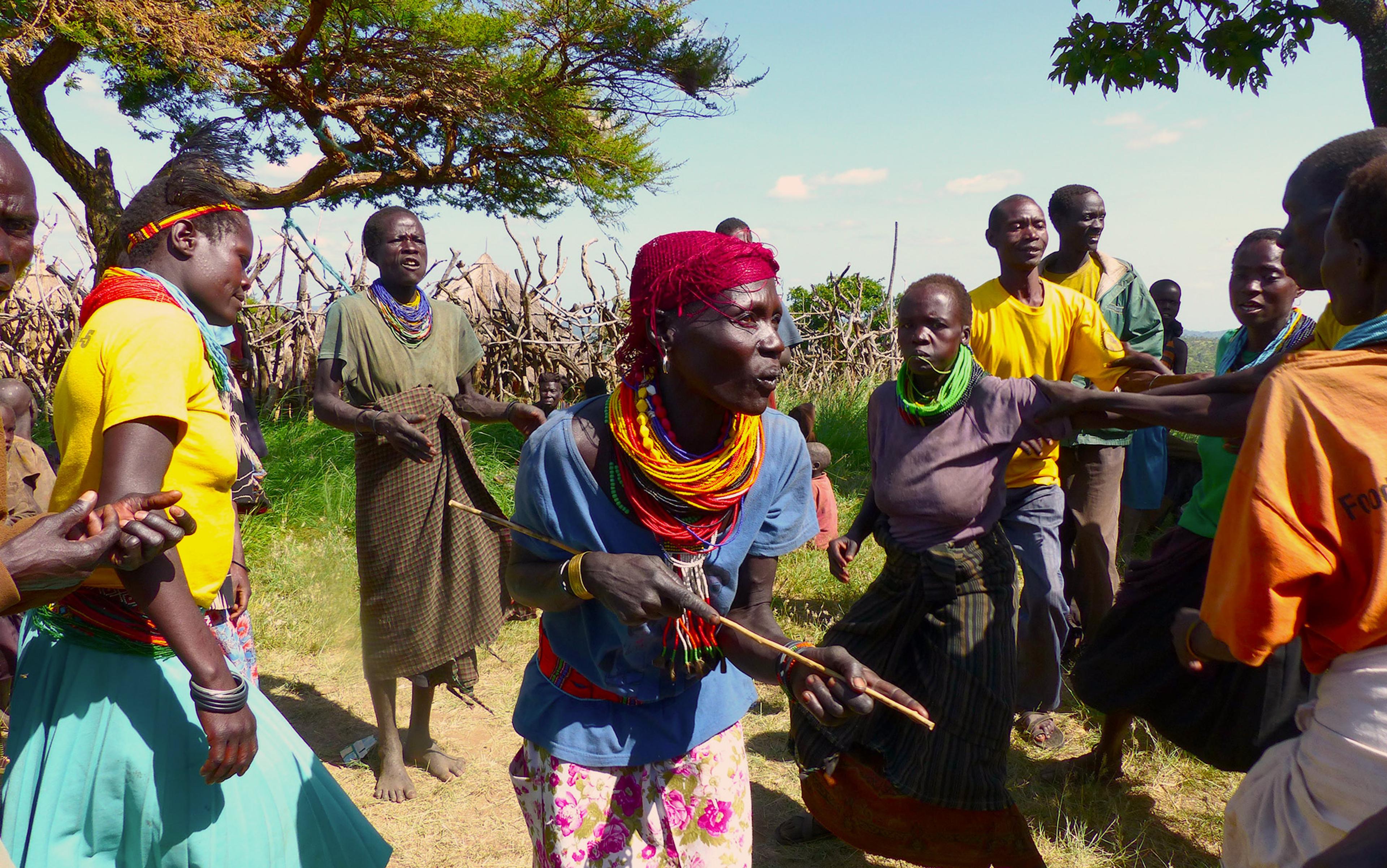Back when it was still known as Burma, Moo Hning’s family fled by sea from the civil war in Myanmar. On rafts and without papers, they sailed from one island to the next, fishing with tackle, scavenging from rock pools and the seabed, and gradually learning which of the sea’s creatures they could safely eat. Over time, the water came to provide a home, and Moo Hning’s family, originally of the Moken people, rejoined their ancestors in this south-east Asian community known romantically as ‘sea gipsies’.
Moo Hning and I were sitting on the deck of a schooner close to the naval border with Myanmar, having dropped anchor in Thai waters of the Andaman Sea. Now in her 60s, she turned back from looking at the Surin archipelago and said with a smile to the interpreter: ‘My life has been very difficult.’ The coast was the kind of place you could imagine Colonel Kurtz getting lost. A village of some 50 stilt huts, fashioned from grey wood, stood on a thin, white beach ready to be swallowed by dense rainforest, the undergrowth giving out a sweet, acrid odour as it blew warm across the waters. The two-stroke engines of long-tail boats — known in Moken as kabang — chopped like hatchets at the sea, as fishermen and divers left the island for the day.
I had come here to record the efforts of a documentary team. Their premise – well-intentioned enough – was that people in the industrialised world should learn timeless lessons from indigenous cultures. Moo Hning had sailed with us from Phuket, the largest Thai island, where her family had eventually settled, to help us embed with the Moken on Surin. Though it was the home of her ancestors, she had never actually visited the island before.
On the deck of the boat, she told us stories: about how her family had made clothes from plastic fertiliser sacks they found drifting on the water, how old engine oil containers had been their best cooking pots, and how a newborn baby would be submerged in the sea to wash it clean. She laughed with each memory, and then, as the crew prepared to go ashore, she pressed her wrinkled hands to her chest and started to cry. She thanked the boat’s skipper, the head of the documentary team, and then the rest of the crew individually. ‘Nobody has ever done anything to help us before,’ she explained. ‘I dreamt I would come here one day, but I didn’t know how I would find the money.’ She touched her head. ‘I dreamt I would come here on a boat.’
This didn’t seem like such an impressive feat of prophecy to me – how else would she have got to the islands? But I had to admit that Moo Hning’s route back to her ancestral home was true to the character of Moken lore. This, after all, was a people that had slipped through the gaps in the states formed long after their own tribes. Compelled to take chances in life, she had trusted in the good spirits to which the Moken pay tribute, in a belief system that welds animism to Buddhism and, in Malay and Indonesian waters further south, to Islam.
On the Surin islands, she soon found half a dozen direct family members, all of whom she knew well already, and who in turn knew all about her life on the mainland. For the five days we stayed on the island, we were invited daily to eat at Moo Hning’s table. Each time we came, her relatives thanked us — as if unaware of the self-interest that had been part of the arrangement — for bringing her back to them.
Just as fishermen in the Indian Ocean reported dolphins swimming out to sea, and elephants hurried from the coast, the Moken made for higher ground
Moo Hning’s case was not unique. Despite their dislocation, all Moken seemed to know exactly what each of their relatives was doing, across three countries and hundreds of nautical miles. They communicated their news without modern technology, save for occasional photographs, sending word with the fishing boats that travelled back and forth between islands and coastal towns. On Surin I watched the lines of code for this indigenous internet being written: bare-breasted women, teeth stained red by betel, sitting in the shade beneath their huts and talking all day long.
This oral tradition is what brought the Moken most of their small renown in the wider world. Immediately before the Boxing Day tsunami of 2004, the Moken noticed a sudden and dramatic decline in the tide. Traditional stories had told of a laboon, a ‘wave that consumes people’, that was to be expected when the sea started to retreat in such a way. Through their stories, the Moken had preserved the ability accurately to predict a tsunami. Just as fishermen in the Indian Ocean reported dolphins swimming out to sea, and elephants were said to have hurried from the coast, likewise the Moken of Surin made for higher ground: there was only one fatality in a village of 200 inhabitants when the wave destroyed their entire beachside village. I heard how, every week for months on end, the sea kept delivering another news team that wanted to meet the people who had survived the tsunami.
One evening, over the hum of a generator, I sat talking to an old fisherman. With a cocksure smile he told me why the Thais liked having Moken on their fishing boats. ‘The Thais look, but they don’t see,’ he said. Bare-chested, hugging his leg, he told me some of what he had learnt: how a fish will not bite anything on a cold hook, and how different fish live in the cold channels of water that run through the Andaman. With a gleam in his eye, he talked of fissures in the seabed from which fresh water issues and can be drunk. Now and then he laughed, still amazed at the sea’s secrets.
Before departing for the Andaman, I had read about research by Anna Gislén of Lund University in Sweden that found Moken children to have significantly better underwater vision than their European peers. One afternoon, as the documentary team gathered underwater footage, I snorkelled behind, watching a Moken man swimming effortlessly, minute after minute, without breaking the surface to draw breath. I climbed back into the boat and watched the last of the shoot. The swimmer’s stroke was unorthodox but powerful, a froglike crawl that easily outpaced a cameraman in fins. I looked at this man, working in his ancestral habitat, and thought about the oil rights, industrial fishing and border claims that were being contested in the waters around him. I had heard how Moken are often stopped and fined as they travel the Andaman Sea in their boats, assumed by border patrols to be immigrants rather than simply nomadic. On the overnight voyage to Surin, I had seen a giant pair of trawlers, between them towing nets up to half a kilometre in length, emptying the sea of fish. Sitting on the boat that afternoon, I wondered whether the modern world could still find a place for a people who lived so close to nature, who appeared not only culturally but biologically adapted to their habitat.
As time passed, I realised I had come to Surin with a vicarious anger at modernity, generated on the Moken’s behalf. But the people themselves confounded me. Their stories were hard to hear, their survival always in jeopardy, yet the sense of a grave injustice was mine alone. Things that, to my mind, demanded a political response were to the Moken simply evidence of bad spirits, to be set aboard a ceremonial kabang and floated out to sea in a cloud of incense. The Moken’s language has few temporal markers; their culture, shaped by the daily struggle for survival, seems to have little concern with time. It seems, perhaps, ill-equipped to deal with the slow changes heading their way. A fisherman named Dunung told me he was thought to be 50 years old, but of course he couldn’t be sure. Then he laughed: ‘If I was 50, I would be wiser.’
Rightly or wrongly, the Moken seemed to define their own history in terms of near-constant struggle
According to Jacques Ivanoff, the French anthropologist who is an authority on the Moken, the Thai government’s sole policy on preserving the Moken way of life is to corral them inside national parks, effectively turning a traditional community into a tourist commodity. The Moken of Surin told me how they were permitted to fish only for sustenance. While trawlers scoured the seas, the nomads were forbidden to catch even a small surplus to trade for rice, clothing or medicine. They had, in short, lost their autonomy. Those Moken who left their island homes for the economic opportunities of the Thai mainland, meanwhile, tended to forget their native language, while property developers forced them out of their coastal settlements and the alien structure of a monetary economy plunged them into poverty.
These people had faced dangers greater than life inside a national park, of course. Rightly or wrongly, the Moken seemed to define their own history in terms of near-constant struggle. Their culture derived a part of its very meaning from hardship. Still, I wondered what would happen if those hardships became too great to endure. One day, perhaps, there would come a problem that stopped the stories rather than becoming a subject of them.
Moken people on Surin told me that the islands were their paradise. They would happily live and die on them. I asked Moo Hning, who had wept with joy on reaching Surin, if she looked forward to returning to Phuket, and her town of roads and cars and brick houses. ‘I am so happy to see Surin,’ she said, nodding back across the seas, ‘but my life is not here’.
Behind the village I walked through forest gardens. A charcoal pit was smoking as Moken prepared to cook. Around me, chilli bushes dripped with green peppers, bleeding orange towards a bright red tip, and above me were trees of coconuts, papaya and banana. Sweet potatoes were growing in the earth. An interpreter had saved seeds from a pumpkin that the film crew cooked one evening, and in an envelope she handed them to a young Moken girl, assuring her they would grow well here in the soil of Surin. The Moken augmented their subsistence fishing with food aid from the Thai authorities, and the people recognised their good fortune. The ageing Thai king Bhumibol Adulyadej had made their protection a point of his rule (though our own Thai crew seemed convinced that he had already died in secret). Again it was I, not the Moken, who worried at this reliance on a decrepit monarch and his unpredictable heirs.
We left Surin in a deluge of rain, water falling thick from a black sky and bouncing back up from the sea. Moo Hning carried a banana plant, a gift from her family, as we waded through the shallows, pushing our dinghy past rocks and towards deeper water. Back on deck, to the sound of a mechanical rattle, a chain began to clink, winding around a capstan as the anchor was hauled up. While we prepared to leave for Phuket, my early conviction that the Moken way of life should be saved from the modern world had started to falter. Who would do the saving, and for whose benefit? Even if our desire to conserve was understandable, how did it account for Moken such as Moo Hning, who eventually chose the opportunities of the mainland? I wondered whether we expected the Moken, and indigenous peoples like them, to act as custodians for a spirituality the rest of our world had long since left behind. Perhaps we looked to them to provide us with a purity, a sense of the human that we still cherished, but no longer wanted for ourselves.
